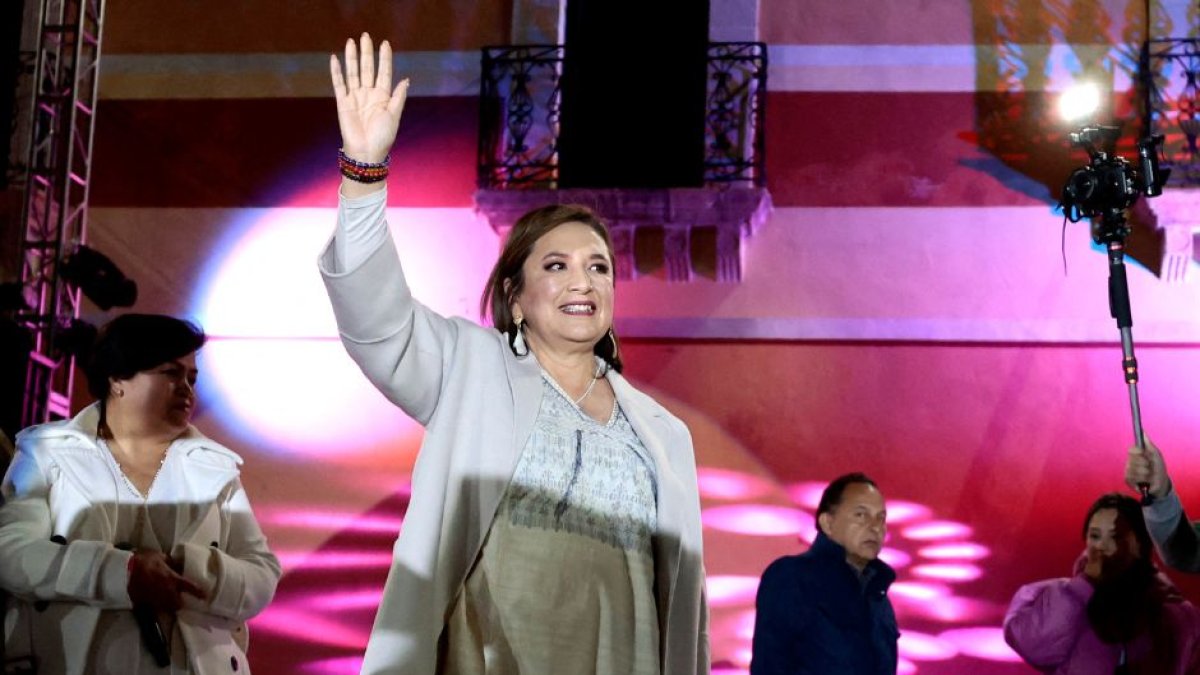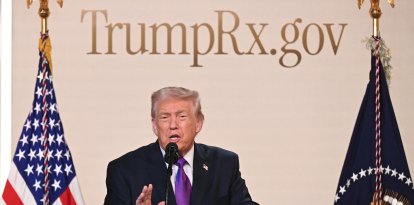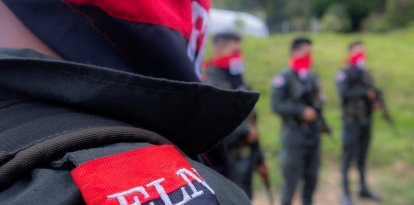Mexico: the opposition starts its electoral campaign with crime at the center of its agenda
The PRI candidate, Xóchitl Gálvez, has just over 30% of voting intentions in the polls and is competing against the ruling party Claudia Sheinbaum.

(ULISES RUIZ / AFP)
The electoral campaign for the Mexican presidency officially began this Friday, and the opposition candidate, Xóchitl Gálvez, did not waste any more time and began practically a day before the official proposal of the Morena party.
It was in the streets of Fresnillo, in the state of Zacatecas, where Gálvez made her first official campaign appearance, as midnight local time struck. The presidential candidate got out of a van to tour the streets of the place, plagued by massive insecurity. Xóchitl Gálvez intends to make the fight against crime one of his workhorses in this electoral campaign, one of the weak points of the current Government of Andrés Manuel López Obrador, and which threatens to hinder the campaign of the continuista Claudia Sheinbaum. "Mexico without Fear" is the centrist's campaign slogan.
"I begin my campaign with a sign of deep respect for the victims of violence in Mexico," Gálvez said, according to the agencies, at her first political rally in the campaign. During the event, some neighbors and followers of the candidate gathered to listen to her and follow her throughout her walk through Fresnillo, where the perception index of insecurity is 96.4%, the highest in the country.
"Fresnillo is the city where people are most afraid of crime here, as in all of Mexico, people are afraid," continued Gálvez, before accusing his rival Scheinbaum of being "indifferent" to the suffering that causes violence and insecurity among ordinary Mexicans. Fresnillo is in the first stage of a tour of the most dangerous cities in Mexico.
For this first political act, Gálvez surrounded herself with women from various groups of search mothers, those Mexican women who have lost a child or a very close relative due to the spiral of violence that Mexico is going through due to gangs and drug trafficking. Along with them, according to AFP, a large group of workers and miners, as well as activists from the parties that support the candidacy of Xóchitl Gálvez for the Presidency.
The Institutional Revolutionary Party, a party that governed Mexico in a practically single-party system until the late 90s; the National Action Party, also a liberal conservative, and finally the leftist Party of the Democratic Revolution are those who form the coalition against Claudia Sheinbaum. They add up to about 31% of voting intention, according to Oraculus surveys.
"Hugs, not bullets"
The candidate who intends to continue the work of Andrés Manuel López Obrador has 63% in the same surveys. The former mayor of Mexico City will have to respond to criticism of AMLO's anti-crime campaigns, which called for "hugs, not bullets" to criminals.
Sheinbaum will officially begin his campaign with a massive event from the Zócalo square, in the Mexican capital. Everything seems to indicate that Sheinbaum will not bring major changes to the Government of Andrés Manuel López Obrador and that it will be a remodeling of the Morena facade, which opts for a woman to refresh its image. Sheinbaum overtook the former Foreign Minister of the Mexican Government as a left-wing candidate. He is part of the hard core of President Obrador, who cannot run for a third term, as stipulated in the Constitution.

























